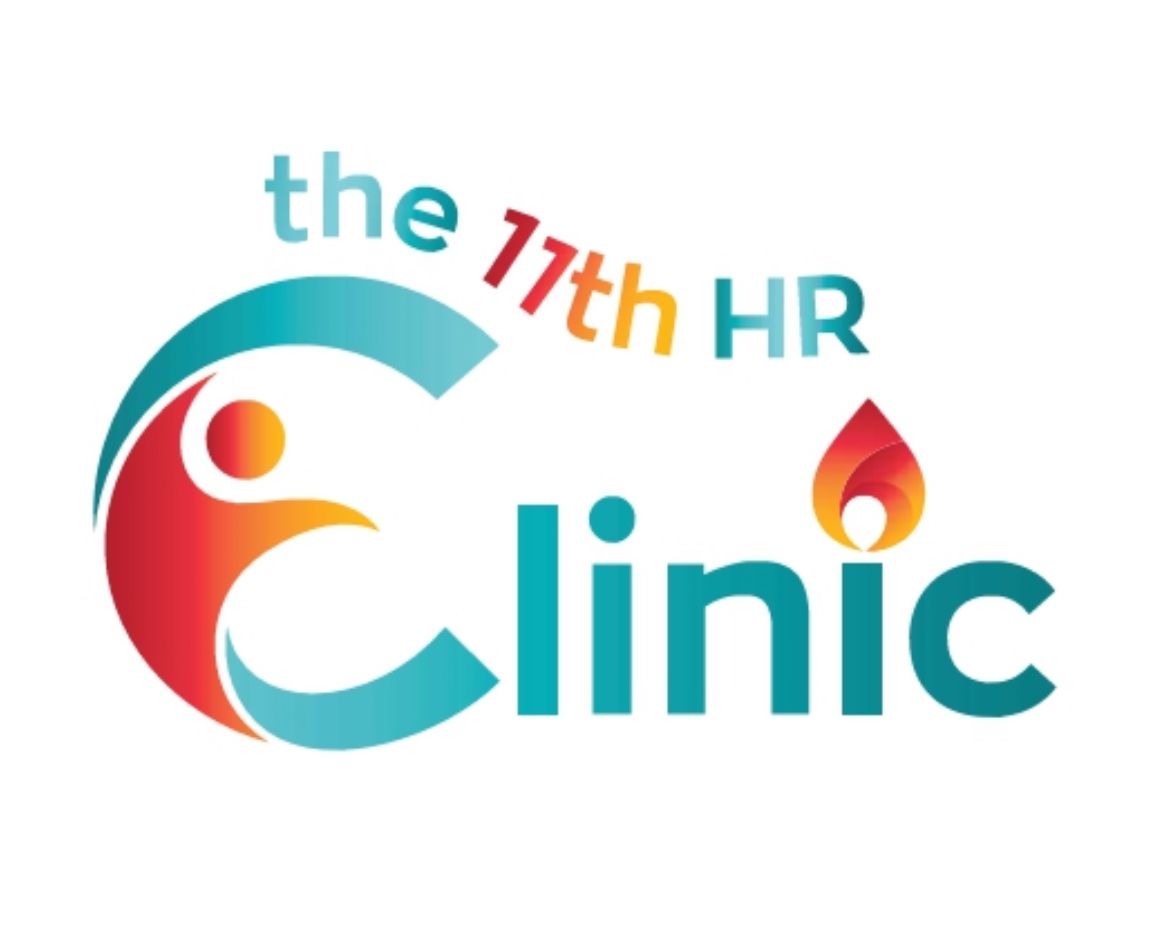Resilience, Rest, and Ethical Leadership in Challenging Times
Essential Skills for the 11th Hour: Leading with Courage, Clarity, and Care
In an era marked by rapid change, political instability, and rising psychosocial stressors in the workplace, the need for leaders and teams to operate from a foundation of resilience, integrity, and wellbeing has never been more urgent. Whether navigating corporate restructures, workforce fatigue, burnout, or ethical dilemmas, success in the modern workplace depends less on charisma or strategy alone, and more on cultivating a culture where people can recover, think clearly, and act with purpose.
At the 11th hour clinic, we work with leaders and organisations at the point of pressure. The critical moments when psychological safety, value alignment, and executive functioning begin to fray. This article explores the intertwined role of resilience, rest, and ethical leadership, offering a research-backed guide to rebuilding and sustaining organisational health.
The Science of Resilience: Beyond “Bouncing Back”
Resilience is commonly mistaken for toughness or stoicism. In fact, psychological resilience is a dynamic, learnable process that allows individuals and systems to adapt, reorganise, and even grow in response to stress and disruption. As Masten (2001) described, it’s often built through “ordinary magic”, the presence of protective factors like supportive relationships, adaptive coping mechanisms, and access to meaningful work.
Recent work has extended resilience into the organisational domain. Sutcliffe and Vogus (2003) identified that resilient organisations aren’t those that avoid disruption but those that maintain functioning and coherence during it. This includes fostering environments where people feel safe to raise concerns, experiment with new solutions, and rely on one another when things go wrong.
Key predictors of individual and organisational resilience include:
- Cognitive flexibility and the ability to reframe challenges (Tugade & Fredrickson, 2004)
- Emotional regulation, including mindfulness and distress tolerance (Gross, 2013)
- Relational trust and psychological safety (Edmondson, 1999)
The Rest Ethic: Restoring Cognitive and Ethical Capacity
Chronic stress and prolonged activation of the body’s threat systems impair executive function, reduce empathy, and promote reactive rather than reflective decision-making. In leadership roles, these changes can result in rigid thinking, overcontrol, or ethical lapses under pressure. Sleep research continues to show that rest is not a luxury but a biological and cognitive necessity. Sleep deprivation impairs the prefrontal cortex, which governs impulse control, moral reasoning, and complex decision-making (Killgore, 2010). Burnout, meanwhile, has been associated with increased cynicism, emotional exhaustion, and reduced capacity to lead with integrity (Maslach & Leiter, 2016).
Few organisations treat rest with the seriousness it deserves. The modern workplace often rewards endurance over recovery leading to diminished performance over time and higher turnover. Rest is also a cultural issue. Workplaces that encourage deliberate recovery, boundaries around availability, and downtime as a leadership value, are more likely to retain top talent and sustain long-term performance (Fritz et al., 2011).
Ethical Leadership: A Stabilising Force in Uncertain Times
Ethical leadership is the ability to model and reinforce moral behaviour, fairness, and respect for others, especially when it's difficult to do so. According to Brown and Treviño (2006), ethical leaders demonstrate consistency between words and actions, transparency in decision-making, and compassion in response to errors or underperformance.
Leaders who foster psychological safety, a climate where employees feel safe to speak up without fear of humiliation, create teams that innovate, collaborate, and self-correct (Edmondson, 1999). Importantly, ethical leadership is contagious: employees model the moral tone of their leaders, a process referred to as moral elevation or trickle-down ethics (Mayer et al., 2009). In periods of ambiguity, such as after a scandal, restructure, or organisational trauma, ethical leadership becomes even more vital. It helps rebuild trust, reduce moral disengagement, and reinforce a shared sense of purpose.
From Insight to Action: What Leaders and Organisations Can Do
1. Train for adaptive resilience
Resilience is not built in isolation. Leaders and teams need access to evidence-informed practices that increase self-awareness, emotional regulation, and adaptive communication. Mindfulness-based stress reduction (MBSR), reflective team practices, and structured group supervision have shown strong evidence for enhancing professional resilience (Burton et al., 2017; Kabat-Zinn, 1990).
2. Rethink recovery as a performance strategy
Encourage micro-breaks, prioritise sleep hygiene, and role-model rest as a leadership practice. Create organisational norms that support mental detachment from work, especially after high-pressure projects or emotionally demanding roles (Sonnentag & Fritz, 2007).
3. Lead with integrity under pressure
Invest in leadership development that includes ethical decision-making, psychological safety, and values-based communication. Ethics should be embedded in policy and practice reinforced by ongoing training, peer discussion, and accountability structures.
4. Engage in culture audits and leadership coaching
Organisational wellbeing begins with awareness. At the 11th hour clinic, we offer culture audits, burnout risk mapping, and ethical leadership coaching designed to identify early warning signs of dysfunction and support healthy, high-performance cultures.
Building Cultures That Endure
The 11th hour is not just a crisis point, it is a turning point. Resilience, rest, and ethical leadership are not soft concepts. They are strategic imperatives for organisations seeking to thrive amid complexity, uncertainty, and change.
Our team at the 11th hour clinic is currently developing bespoke training programs and organisational diagnostics that support leaders and teams in embedding these principles practically, compassionately, and sustainably.
To learn more about how we can support your workplace, visit www.11thhrclinic.com.au or contact us to explore our upcoming offerings.
References
Burton, A., Burgess, C., Dean, S., Koutsopoulou, G. Z., & Hugh-Jones, S. (2017). How effective are mindfulness-based interventions for reducing stress among healthcare professionals? A systematic review and meta-analysis. Stress and Health, 33(1), 3–13.
Cohen, S., & Wills, T. A. (1985). Stress, social support, and the buffering hypothesis. Psychological Bulletin, 98(2), 310–357.
Dinges, D. F., et al. (1997). Sleep deprivation and its effects on cognitive performance. Journal of Clinical Neurophysiology, 14(4), 349–360.
Edmondson, A. (1999). Psychological safety and learning behavior in work teams. Administrative Science Quarterly, 44(2), 350–383.
Fritz, C., Lam, C. F., & Spreitzer, G. M. (2011). It’s the little things that matter: An examination of knowledge workers’ energy management. Academy of Management Perspectives, 25(3), 28–39.
Gross, J. J. (2013). Emotion regulation: Taking stock and moving forward. Emotion, 13(3), 359–365.
Kabat-Zinn, J. (1990). Full catastrophe living. Bantam.
Killgore, W. D. S. (2010). Effects of sleep deprivation on cognition. Progress in Brain Research, 185, 105–129.
Maslach, C., & Leiter, M. P. (2016). Understanding the burnout experience. World Psychiatry, 15(2), 103–111.
Masten, A. S. (2001). Ordinary magic. American Psychologist, 56(3), 227–238.
Mayer, D. M., et al. (2009). How low does ethical leadership flow? Organizational Behavior and Human Decision Processes, 108(1), 1–13.
Shanafelt, T. D., et al. (2015). Burnout and medical errors among American surgeons. Annals of Surgery, 251(6), 995–1000.
Sonnentag, S., & Fritz, C. (2007). The recovery experience questionnaire. Journal of Occupational Health Psychology, 12(3), 204–221.
Southwick, S. M., et al. (2014). Resilience definitions, theory, and challenges. European Journal of Psychotraumatology, 5.
Sutcliffe, K. M., & Vogus, T. J. (2003). Organizing for resilience. In Positive Organizational Scholarship, 94–110.
Tugade, M. M., & Fredrickson, B. L. (2004). Resilient individuals use positive emotions. Journal of Personality and Social Psychology, 86(2), 320–333.
Walker, M. (2009). Why we sleep. Scribner.



